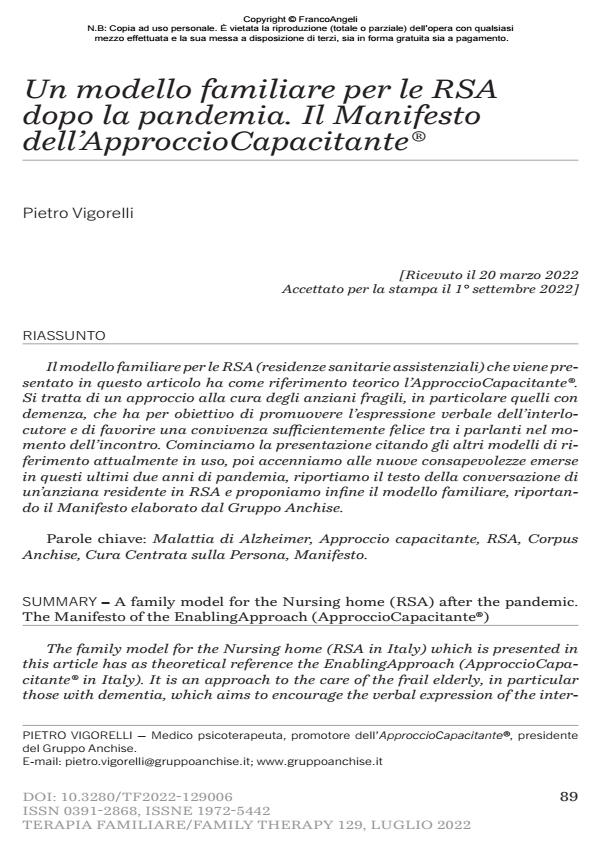A family model for the Nursing home (RSA) after the pandemic. The Manifesto of the EnablingApproach (ApproccioCapacitante®)
Journal title TERAPIA FAMILIARE
Author/s Pietro Vigorelli
Publishing Year 2022 Issue 2022/129
Language Italian Pages 22 P. 89-110 File size 665 KB
DOI 10.3280/TF2022-129006
DOI is like a bar code for intellectual property: to have more infomation
click here
Below, you can see the article first page
If you want to buy this article in PDF format, you can do it, following the instructions to buy download credits

FrancoAngeli is member of Publishers International Linking Association, Inc (PILA), a not-for-profit association which run the CrossRef service enabling links to and from online scholarly content.
The family model for the Nursing home (RSA in Italy) which is presented in this article has as theoretical reference the EnablingApproach (ApproccioCapa- citante® in Italy). It is an approach to the care of the frail elderly, in particular those with dementia, which aims to encourage the verbal expression of the interlocutor and to promote a sufficiently happy coexistence among the speakers at the time of the encounter. We begin the presentation by quoting the other referen- ce models currently in use, then we mention the new awareness that emerged in the last two years of pandemic, we report the text of the conversation of an elderly resident in RSA and finally propose the family model, reporting the Manifesto processed from the Anchise group.
Keywords: Alzheimer disease, Enabling approach, Nursing Home, Corpus Anchise, Person Centered Care, Manifesto.
Pietro Vigorelli, Un modello familiare per le RSA dopo la pandemia. Il Manifesto dell’ApproccioCapacitante in "TERAPIA FAMILIARE" 129/2022, pp 89-110, DOI: 10.3280/TF2022-129006